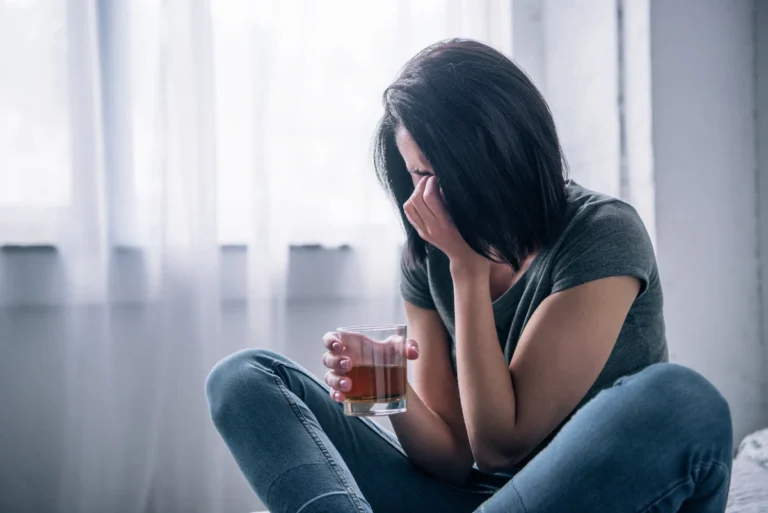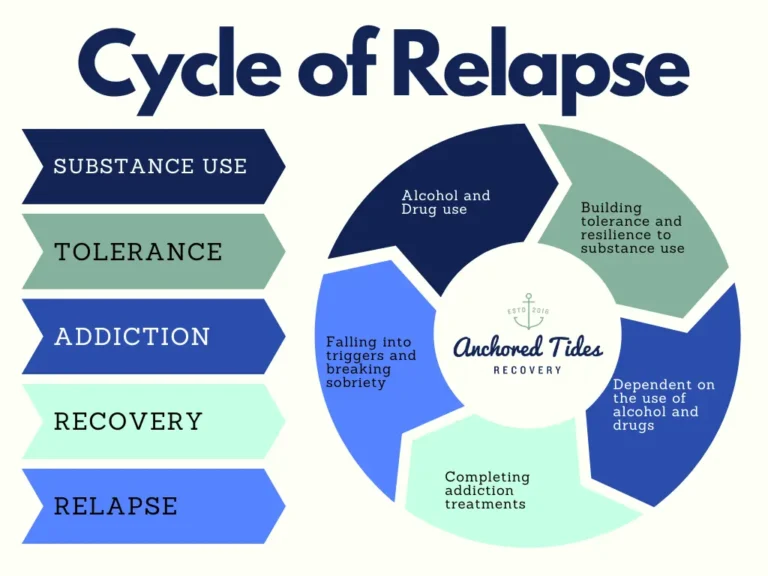
The Relapse Definition
The “Relapse” definition is commonly explained as using a drug after a period of sobriety, or the continued use of a substance despite it having been previously stopped. Falling back into the addictive behaviors of drug or alcohol addiction means you will have to begin the addiction treatment process again. Relapse prevention and coping skills skill can improved upon with time, effort, and relapse and training. This article will go into more detail about these coping strategies.
Is Relapse Part of Addiction Recovery?
Relapse is often misunderstood. Many believe it signifies failure, but the reality is that relapse is a part of the addiction recovery journey for many people. It’s not an endpoint—it’s a sign that an individual’s treatment plan needs adjustments.
At Anchored Tides Recovery in Orange County, CA, we believe that understanding the relapse cycle, recognizing early warning signs, and applying relapse prevention strategies can help individuals sustain long-term recovery. We will walk you through everything you need to know about relapse and how to prevent it.
Does relapse mean addiction treatment didn’t work?
No! Relapse is a sign that adjustments are needed in treatment. Many people recover fully after a relapse by learning from the experience.
What Is the Relapse Cycle?
Relapse is not a single event—it’s a process that happens over time. It can be broken down into three key stages:

1. Emotional Relapse
Even before a person starts thinking about using drugs or alcohol again, there are emotional shifts that set the stage for relapse.
Signs of emotional relapse:
- Bottling up emotions
- Increased anxiety or depression
- Social isolation
- Poor sleep and eating habits
- Neglecting self-care or therapy sessions
At this stage, individuals aren’t actively thinking about using, but they may be feeling overwhelmed and disconnected—two major relapse triggers.
2. Mental Relapse
At this stage, the individual starts having thoughts about using again. They might feel conflicted—part of them wants to stay sober, while another part romanticizes past substance use.
Signs of mental relapse:
- Craving drugs or alcohol
- Thinking about past use with nostalgia
- Lying or hiding thoughts from loved ones
- Planning situations where relapse might occur
- Bargaining (“I can have just one drink and stop.”)
This is a critical turning point—recognizing and addressing these thoughts early can prevent full relapse.
3. Physical Relapse
Physical relapse is when a person returns to substance use. It can start as a “slip”—a one-time use—or lead to full relapse, where old patterns return.
Preventing physical relapse requires early intervention during the emotional and mental stages.
Signs of Relapse: How to Recognize the Warning Signs Early
Recognizing early relapse signs is crucial for intervention before substance use begins again.
Behavioral Signs of Relapse
- Skipping therapy or support group meetings
- Engaging in risky situations or old habits
- Social withdrawal from sober support networks
- Neglecting responsibilities at work, home, or school
Emotional & Mental Signs of Relapse
- Sudden mood swings or irritability
- Feeling hopeless or like recovery isn’t working
- Increased stress without healthy coping mechanisms
- Thoughts of drinking or using “just once”
If you or a loved one experiences these warning signs, it’s time to reach out for support.
Relapse Risk Factors: Who Is More Vulnerable?
While anyone in recovery can experience relapse, certain factors increase the risk.
Common Relapse Risk Factors:
- High stress levels – Work, relationships, financial struggles
- Untreated mental health conditions – Depression, anxiety, PTSD
- Lack of social support – Isolating from friends and family
- Exposure to triggers – People, places, or situations tied to past substance use
- Overconfidence in recovery – Believing that “just one time” won’t hurt
Being aware of these risk factors allows individuals to stay proactive and prepared.
Relapse Prevention Strategies: How to Stay on Track
Relapse prevention isn’t about perfection—it’s about having a plan to get through difficult moments.
- Surround yourself with sober, supportive people.
- Attend 12-step meetings, therapy, or peer support groups.
- Stay connected with a sponsor or mentor in recovery.
- Know which people, places, and situations make you vulnerable.
- Avoid social settings where substances are present.
- Have an exit plan for uncomfortable situations.
- Exercise, meditation, and deep breathing for stress relief.
- Journaling or therapy for emotional processing.
- Engaging in hobbies and activities that bring joy and purpose.
- Stay in therapy, even when things feel “good.”
- Consider sober living or outpatient programs if you need extra support.
- Take medications as prescribed for co-occurring mental health conditions.
- If you slip, don’t panic—reaching out for help ASAP can prevent full relapse.
- Talk to a trusted support person and be honest about what happened.
- Reevaluate your recovery plan and make necessary adjustments.
Recovery is a lifelong journey—and support is always available.
Relapse & Recovery: The Power of Getting Help
Relapse is a detour, not a dead end. With the right support system, strategies, and professional help, long-term recovery is absolutely possible.
At Anchored Tides Recovery in Huntington Beach, we help individuals break free from addiction by providing holistic treatment, relapse prevention strategies, and long-term recovery support.
If you or a loved one is struggling with addiction or relapse, reach out today. You don’t have to do this alone. 💙
📞 Call Now: 866-329-6639
📍 Visit Us: 19126 Magnolia St, Ste 101, Huntington Beach, CA 92646
Your journey isn’t over. Let’s move forward together.
OUR MISSION
Helping Women Recover
Anchored Tides Recovery’s goal is to provide comprehensive therapeutic and educational services to adult women in recovery from drug and alcohol addiction, mental health issues, and past trauma. We aim to help women learn to foster health, happiness, longevity, and self-reliance. Our goal is to provide an environment where women can achieve and sustain long-term recovery and become positive, thriving members of their communities.


































